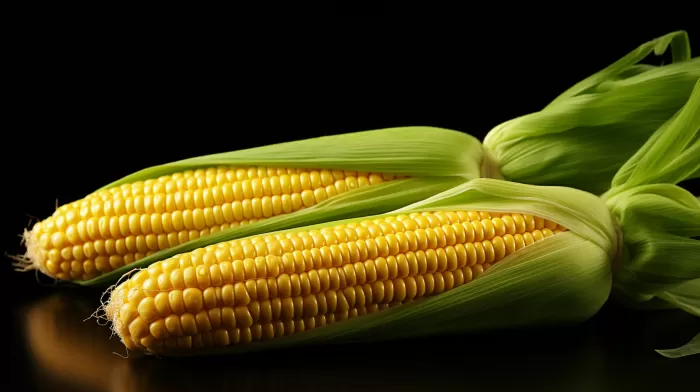Corn is a staple food consumed by millions around the world. It’s versatile, affordable, and can be found in a wide variety of products – but is it safe to eat? With the majority of corn produced from genetically modified (GMO) crops and potential health concerns for those with gluten sensitivities, it’s crucial to be informed about the possible dangers linked to this popular food source.
GMOs: The Hidden Danger in Corn Consumption
A significant portion of corn grown worldwide comes from genetically modified (GMO) seeds. The modifications made to the corn crops allow them to be resistant to specific herbicides and produce their own pesticides, which should, in theory, lead to better crop yield and a reduced need for chemical intervention. However, there have been many concerns raised about the safety of consuming GMOs.
Some studies have suggested a link between GMO consumption and increased risk of allergies, asthma, and gastrointestinal issues, among other health conditions. While the research is not yet conclusive, it’s essential to be aware of the potential risks of consuming GMO corn. One way to avoid GMOs is by consuming organic corn, which is grown without the use of genetically modified seeds or other genetically engineered materials.
Corn and Gluten Sensitivity: A Dangerous Combination?
Those with gluten sensitivity should also consider corn consumption carefully. According to Dr. Peter Osborne, a leading authority on gluten sensitivities, individuals who are sensitive to gluten may also react to substances found in corn. While corn does contain a different type of gluten than wheat – a type that has long been considered safe for those with gluten sensitivities – it may still be potentially harmful.
Dr. Osborne claims that the corn industry might downplay the relationship between corn consumption and gluten sensitivity: “I have personally treated thousands of patients with gluten sensitivity. Those who continue the consumption of corn-based products always have worse outcomes.” A Swedish study supports this position, indicating that those with celiac disease (an autoimmune response to gluten) may also have detrimental reactions to corn.
Breaking Down the Hidden Dangers of Corn: Pesticides and Mycotoxins
To further explore the potential harm of corn consumption, it’s essential to be aware of two significant issues that can affect its crops: pesticides and fungal contamination, which can lead to the production of toxic compounds known as mycotoxins.
The use of pesticides on corn crops can be dangerous for those who consume them. Pesticide residue is often present in the final product, especially when the corn has been grown using genetically modified seeds designed for resistance to certain chemicals. Over time, ingesting even small amounts of these pesticides can lead to negative health effects. The Environmental Working Group has consistently ranked non-organic corn on its Dirty Dozen List, indicating it as one of the most contaminated crops.
Mycotoxins are toxic compounds that are produced by certain fungi growing on crops, including corn. When ingested, they can cause a range of health effects, from mild stomach irritation to more severe issues such as liver damage, cancer, and immune system suppression. The World Health Organization notes that the risk of exposure to mycotoxins is higher in developing countries where regulatory oversight is lax and food preservation methods are insufficient. However, even in developed countries, mycotoxins can still pose a health risk, making corn consumption potentially dangerous.
Putting it All Together: Is Corn Good or Bad for You?
The dangers associated with corn consumption extend beyond gluten sensitivity into broader health concerns. Genetically modified crops, potential contamination with pesticides, and the presence of mycotoxins all contribute to the possible hazards of eating corn. It’s essential to weigh these risks against the nutritional benefits offered by corn products.
When possible, opt for organic corn that has not been genetically modified and is grown without the use of chemical pesticides. This will minimize the risk of exposure to GMOs and pesticide residues. Additionally, be vigilant about food storage and handling, as proper techniques can help prevent fungal contamination and reduce the risk of mycotoxin exposure.
In conclusion, while corn can be a nutritious and versatile food source, it’s essential to be aware of its potential dangers, particularly for those with gluten sensitivities. By staying informed and making mindful choices about the corn products you consume, you can minimize the risks and continue to enjoy this popular food in moderation.



